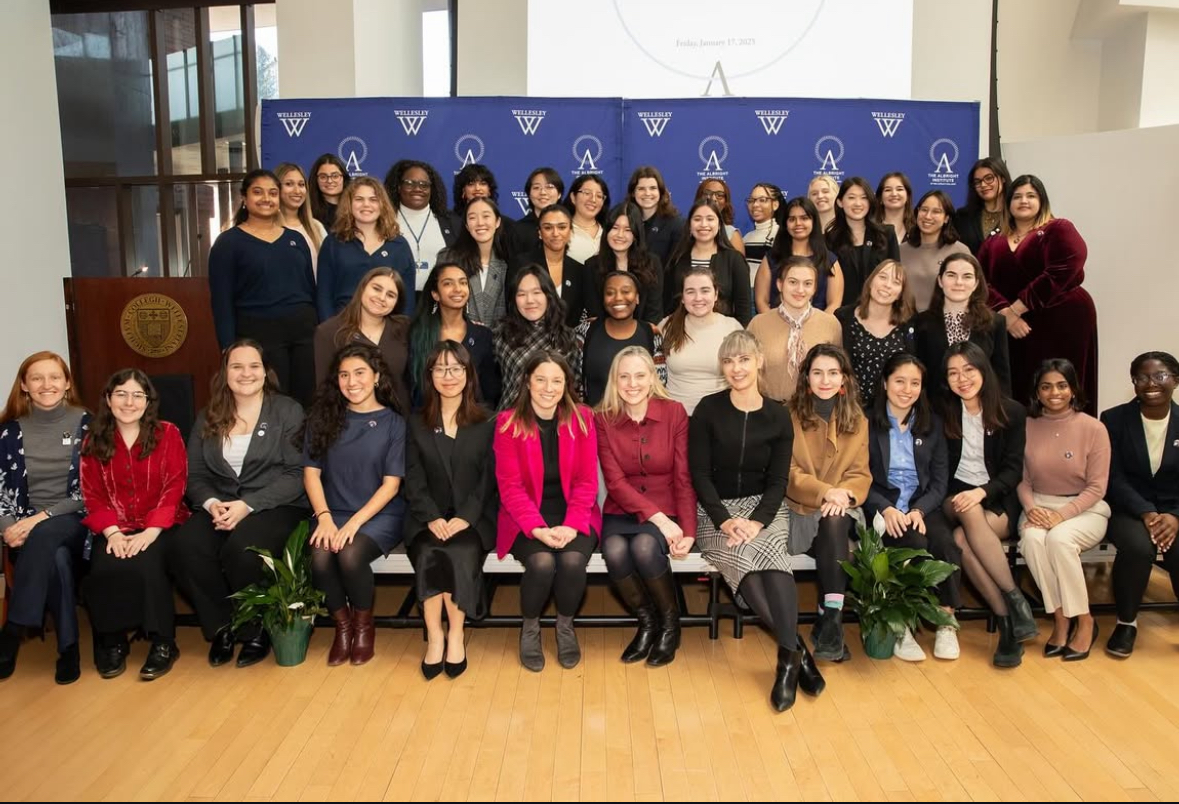The Madeleine Korbel Albright Institute for Global Affairs (The Albright Institute) is an immersive experience for Wellesley students eager to solve pressing issues around the world. Inspired by Secretary Madeleine Albright and her commitment to public service, the program aims to give Albright fellows a glimpse into work surrounding global affairs. Each Wintersession, 40 juniors and seniors are selected to participate in the program. They hail from diverse backgrounds and disciplines, from data science to English. At the end of three weeks of intensive research on a given subject, students present their findings to the Mary Jane Durnford ’59 Distinguished Visiting Professor. Additionally, there is an international component of the program, wherein students are given funding to pursue a global internship of their choosing.
This year’s overarching theme was, “Frontiers of Change: Shaping the Next Wave of Innovation and Disruption.” Albright fellows were split into eight groups and assigned a topic under the general theme. One of the fellows, Annette Chun ’26, described her experience in an interview with the Wellesley News. Her group’s assigned topic was on technology-enabling healthcare in Kenya, a topic which was intentionally chosen for her team as they had no prior knowledge of it. Fellows, she explained, are usually given topics that they are unfamiliar with so they can become experts in a field they haven’t previously explored. This year’s program ran from January 2-18, giving fellows just over two weeks to transform their research into an elaborate presentation.
Chun explained, “We had three checkpoints to make sure we were on track with our research. Initially, we did broader research on tech-enabling healthcare in Kenya and then narrowed it down to the specific issue we wanted to present to the Distinguished Visiting Professor.”
This year’s Distinguished Visiting Professor was Nicole Wong, who specializes in helping high growth technology companies with numerous tasks, such as AI governance and international privacy. She previously served as Deputy US Chief Technology Officer in the Obama Administration and has also worked for Google and Twitter, focusing on the intersection of law and technology. Albright fellows were expected to present to Wong, who would follow up with questions after the presentation.
Says Chun, “One thing I thought was interesting was that presentations weren’t in a traditional slideshow format. Some people did skits, while others did mock podcasts. My group did a mediation because an official mediation is a commonly used platform in Kenya, so we decided to reenact that. Overall, people were really creative with their presentations.”
When asked about memorable moments in her Albright experience, Chun said, “I really enjoyed my cohort. The people in my Albright group were amazing: Virginia Little, Chantria Garcia, Lillie Stewart and Carme Sanz-Muñoz. During one memorable workshop, cohorts were instructed to build a bridge out of cardboard. It was a super fun bonding moment for us, and the overall energy was very positive.”
When asked what advice she had for aspiring Albright fellows, Chun responded, “I think a lot of people think Albright only pertains to those interested in politics and international affairs, but in reality, the program is designed to be interdisciplinary and caters to students of all majors. A lot of Albright speakers are also Wellesley alums, which gave me a newfound appreciation of the College and community.” As Chun says, the application process may seem daunting, but it should not stop one from applying. In her experience, the Albright Program was a rewarding one that provided a new perspective on global affairs.
Image credit: @albright.inst on Instagram
Contact the editors responsible for this story: Phoebe Rebhorn and Hira Khan




